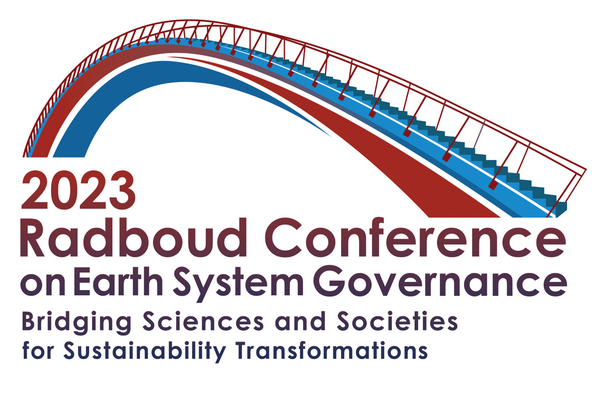A BioAgora session, organised at the 2023 Radboud conference on Earth System Governance (22-27 October), focused on how BioAgora may support transformative change in the European biodiversity policy arena.
With panellists representing the European Commission’s Directorate-General for Environment, the Knowledge Centre for Biodiversity, the BioAgora project, and Finnish science-policy expertise for sustainability, the event gave a comprehensive picture of the practice of science-policy interaction for biodiversity.
New models for science-policy interfaces
Jessika Giraldi from the Commission’s DG Environment summarized the biodiversity policy framework. To enable implementation of the current EU Biodiversity Strategy for 2030 an effective governance structure, sufficient funding, and a rigid evidence-base are required and being set up. In particular, the Strategy calls for a dedicated science-policy mechanism.
Such mechanism is developed as part of the EU Knowledge Centre for Biodiversity (KCBD), established in 2020 and presented by Camino Liquete of the EU Joint Research Centre. Apart from a set of tools to support biodiversity monitoring and tracking policy implementation, the KCBD also supports transformative change by pursuing stronger links with businesses and more cooperation with behavioural science.
Kaisa Korhonen-Kurki, scientific co-coordinator of BioAgora, then presented how BioAgora is setting up the Science Service for Biodiversity around a set of functions that jointly support transformative change in policy-making and society. The strong focus of BioAgora on working in collaboration with a wide range of stakeholders, the aim of challenging the existing practices, and even introducing disrupting elements, enables to achieve this goal towards transformative change.
An insight in how science-policy interaction for sustainability is organised at national level was provided by Johanna Kentala-Lehtonen, Secretary-General of the Finnish Expert Panel for Sustainable Development, working with the Finnish Prime minister’s office. Based on years of experience in a range of platforms and structures that bring science to policy, Johanna shared some lessons relating to timing of science input, establishing an open dialogue and trust-building, and for science to be inclusive and diverse.
Observations and conclusions from the BioAgora session
The lively discussion with the participants resulted in a number of observations and conclusions, that may help the further development of the Science Service for Biodiversity:
- Biodiversity governance is complex, with many actors involved from policy, civil society, business, science etc, at many spatial scales and covering various sectors;
- In this complexity it is challenging for the scientific community to navigate within policies and policy-makers and for policy to be evidence-based;
- It is important to cover a diversity of values by various stakeholders when developing a science-policy-society interface;
- Developments in technology, big data, digital processing and artificial intelligence have great potential to be embedded within science-policy interfaces, but formal reporting processes need to be adapted to make this happen;
- BioAgora adopts an approach to support transformative change by following the pathways of collaborating, challenging and disrupting;
- Science is only one aspect in policy-making, it is therefore important to have an open dialogue with relevant players, build trust, adapt language and be diverse and inclusive in order to be heard.
The session was organised by BioAgora on 24 October 2023 in Nijmegen, the Netherlands, with about 25 attendants.
